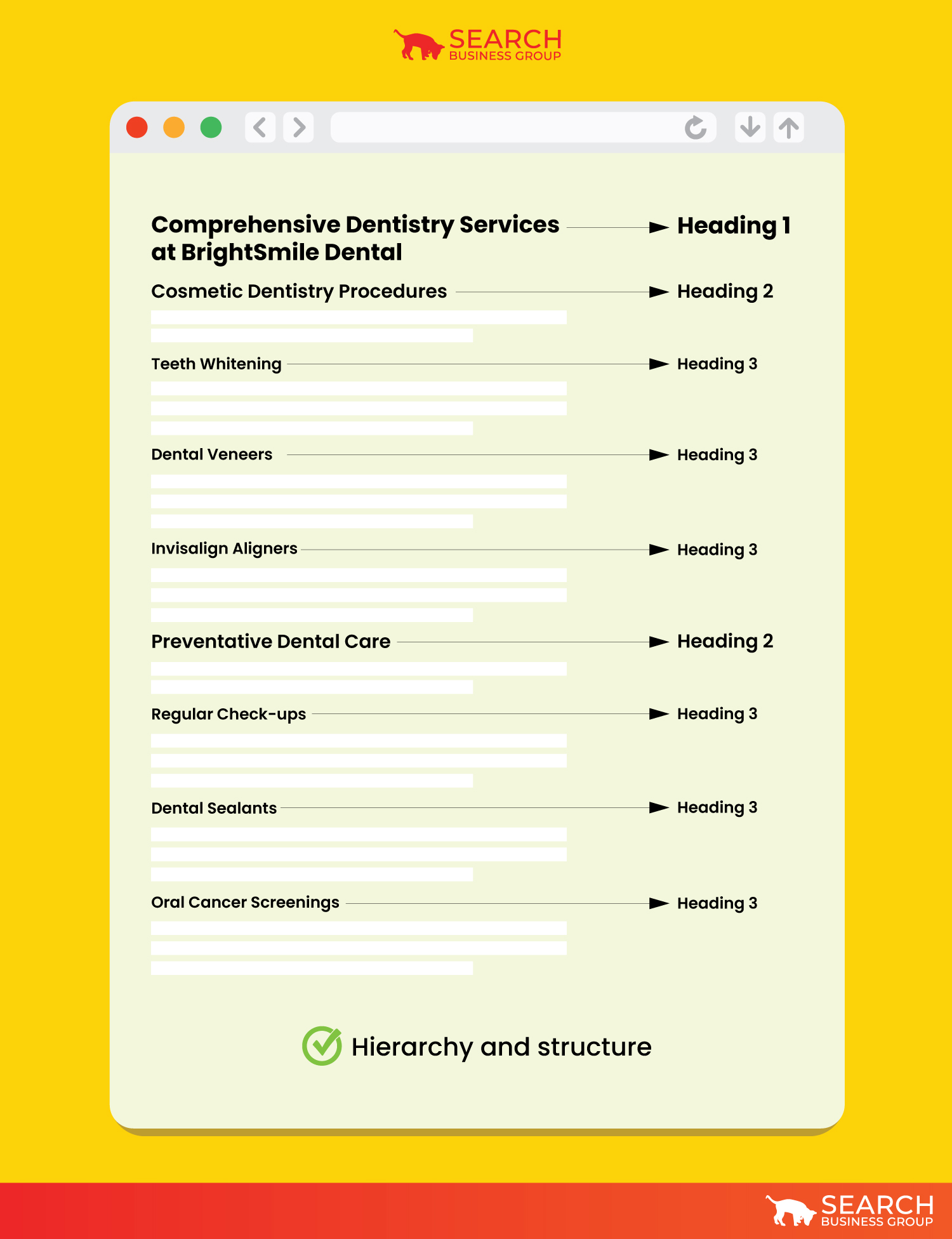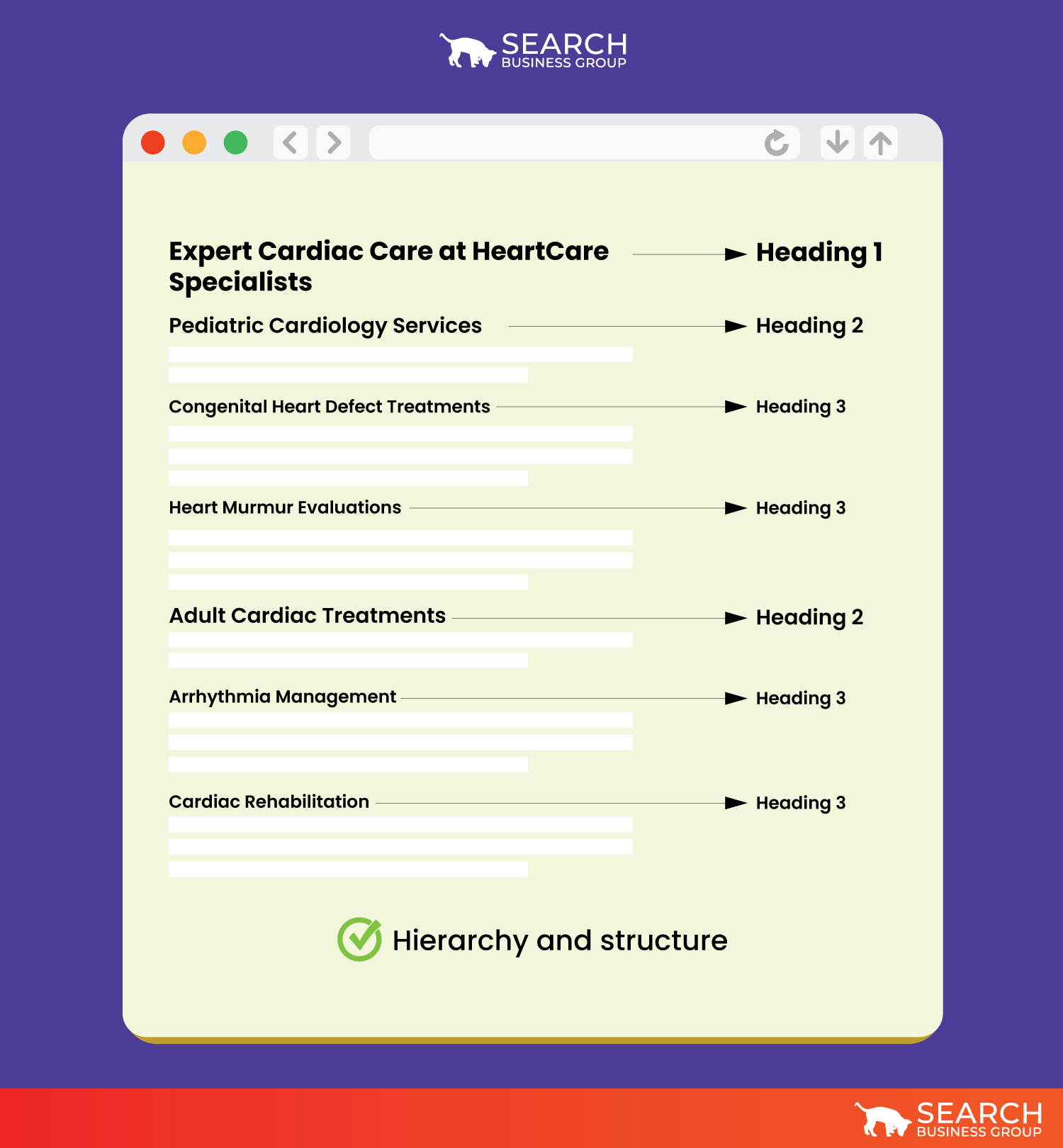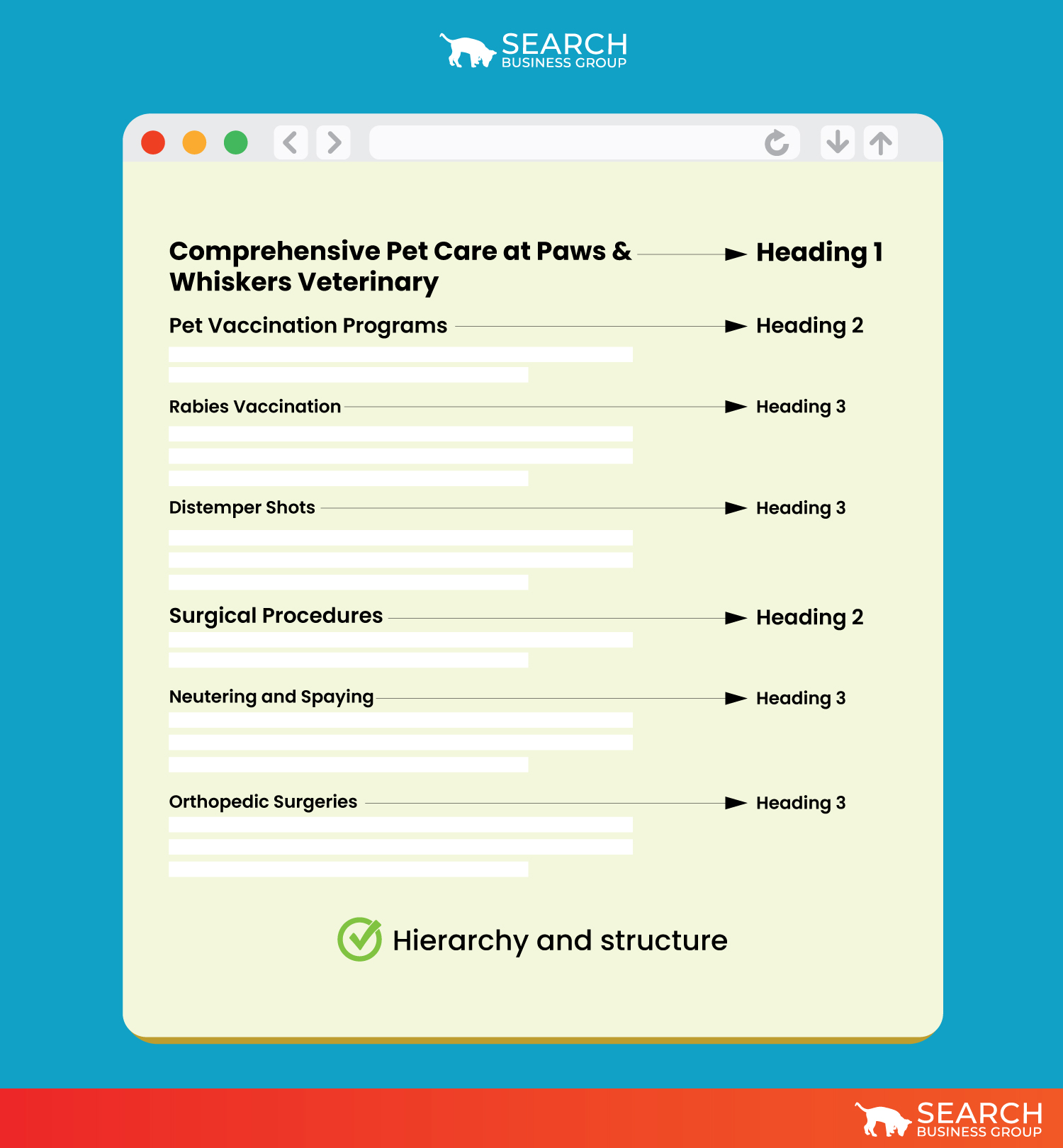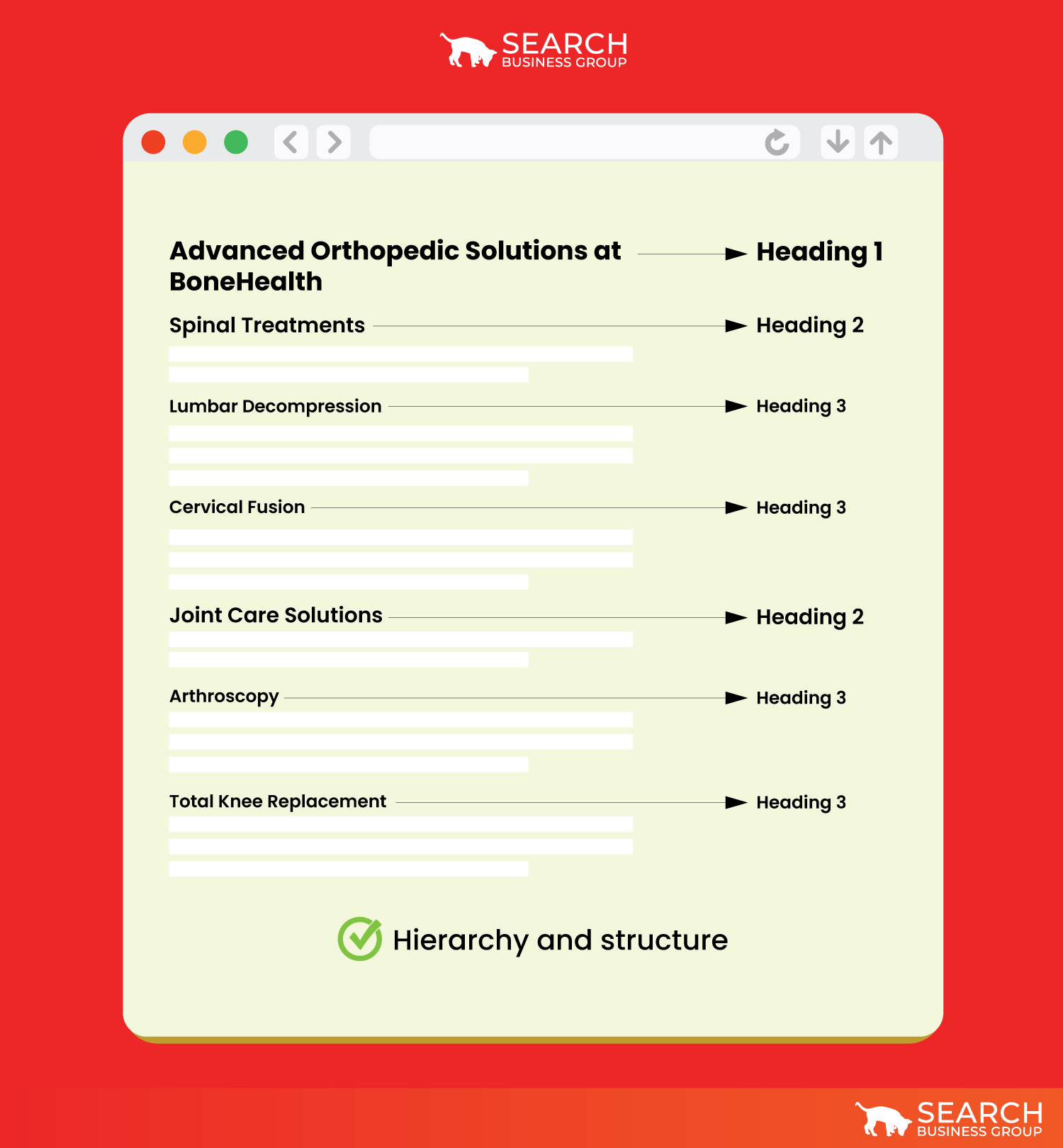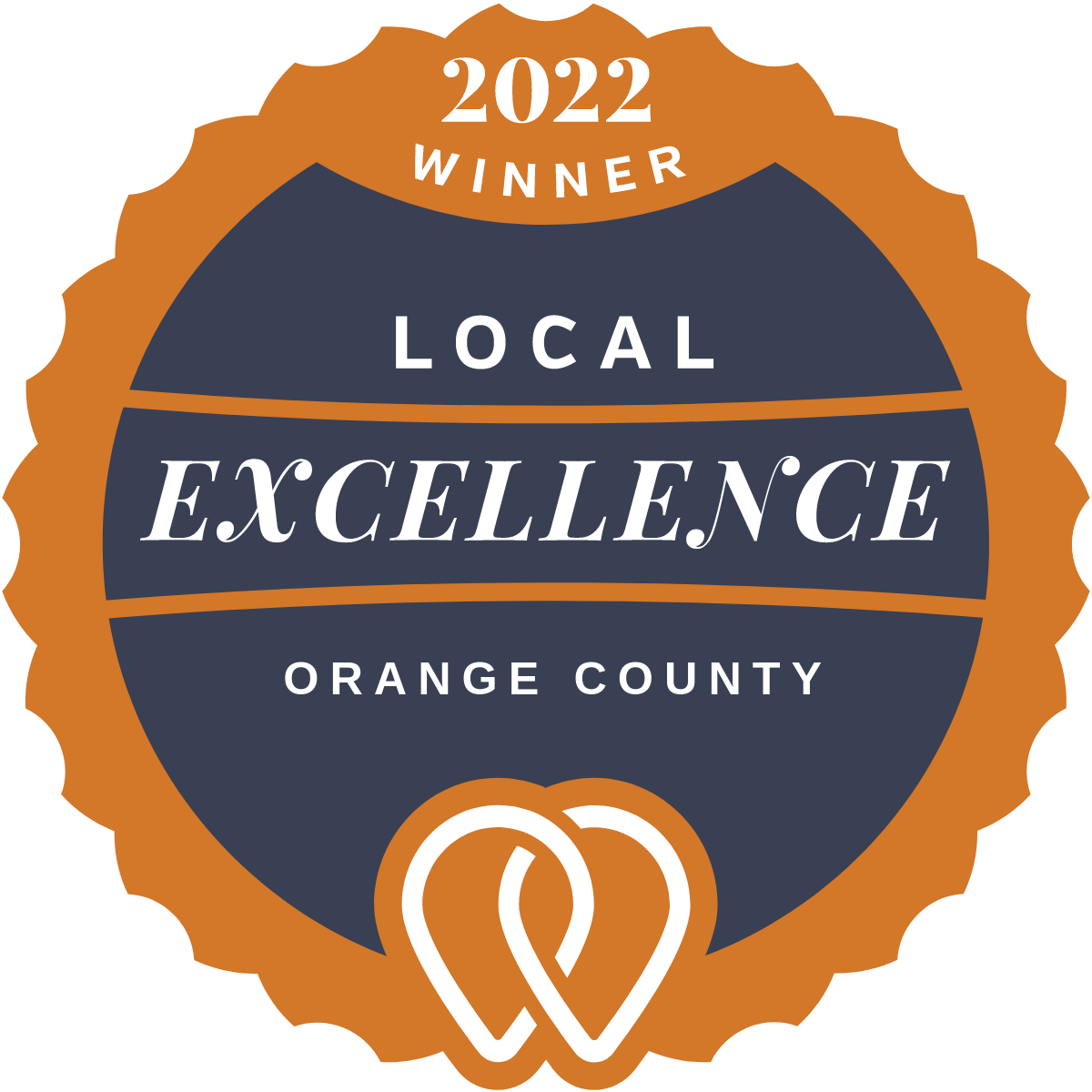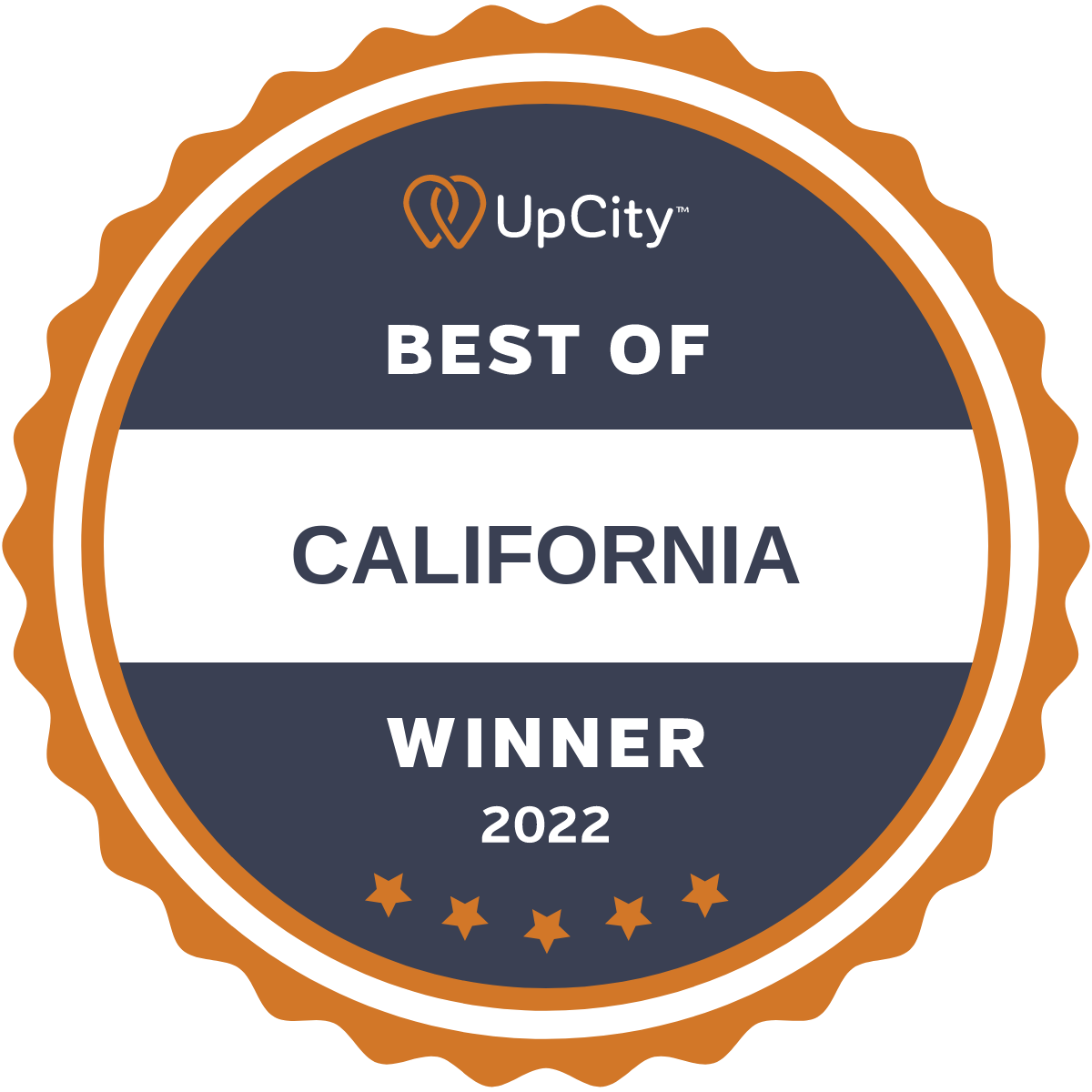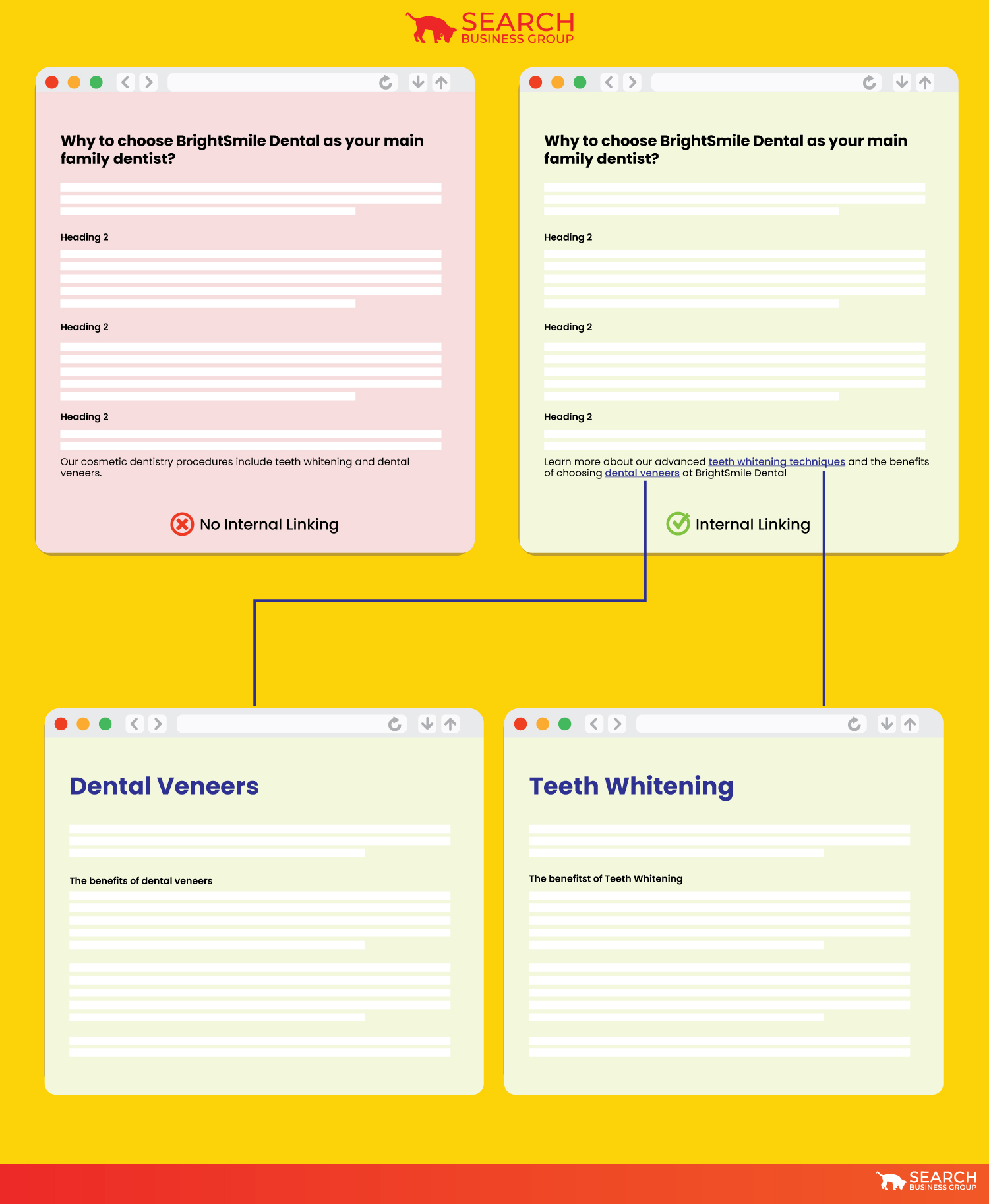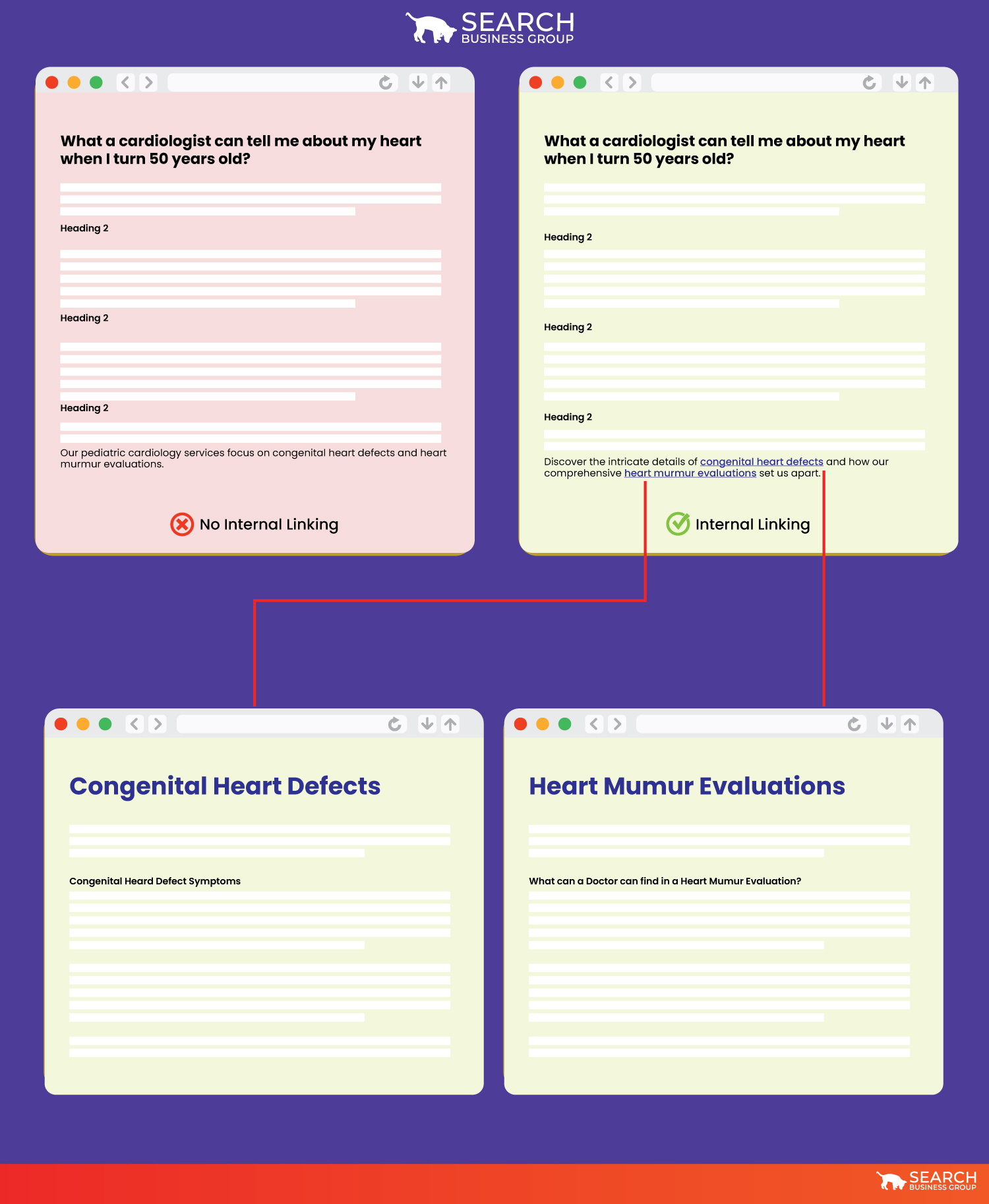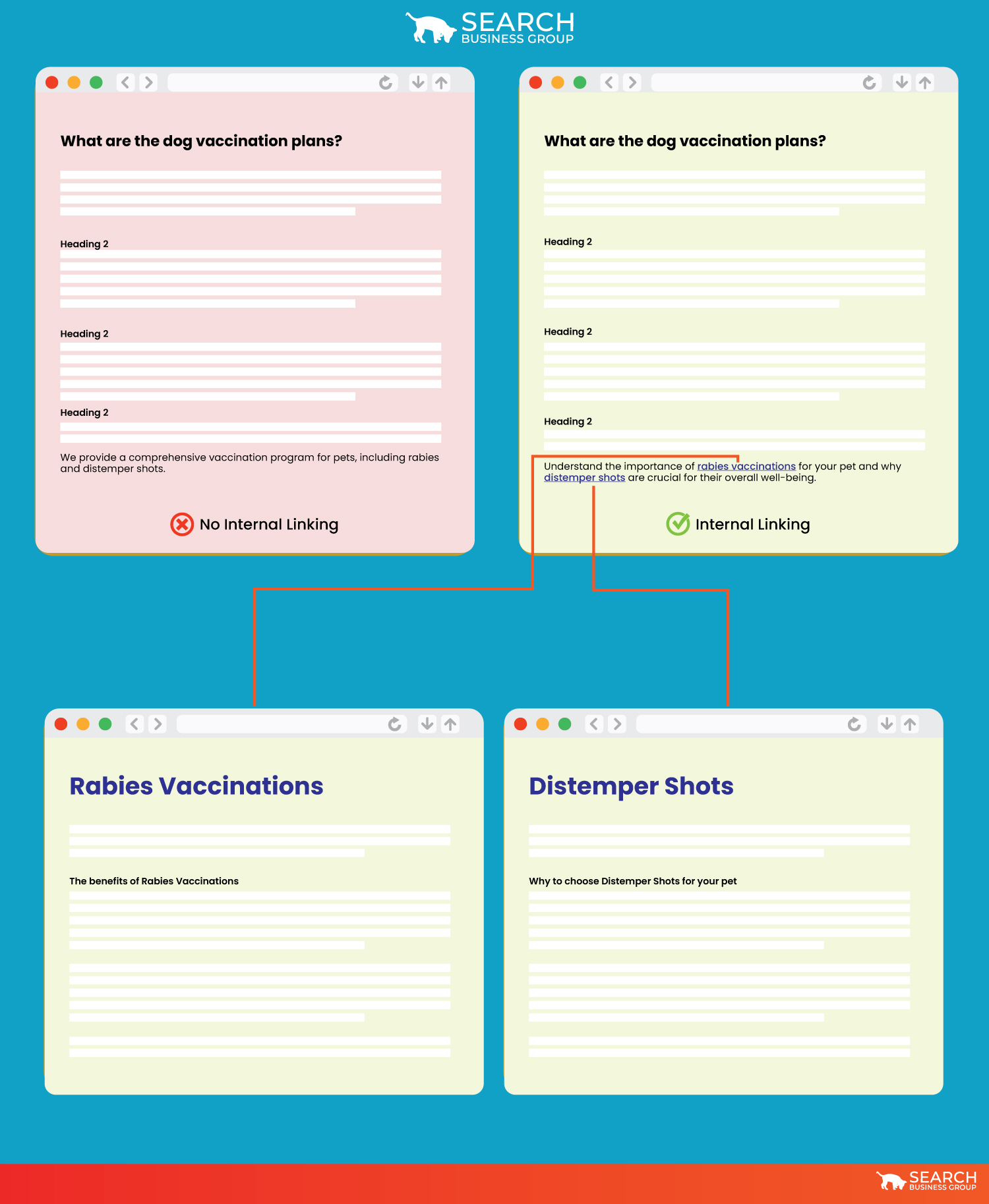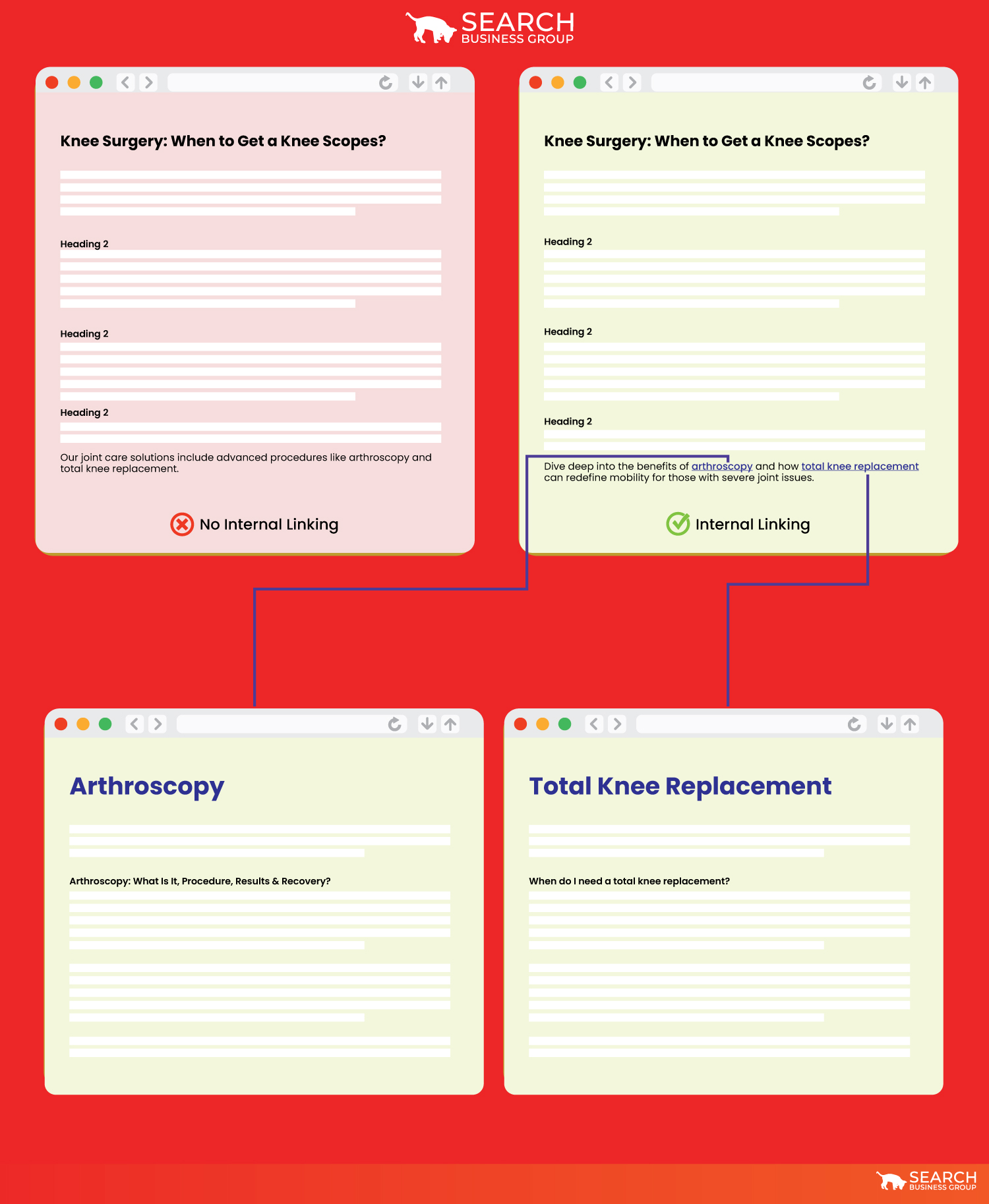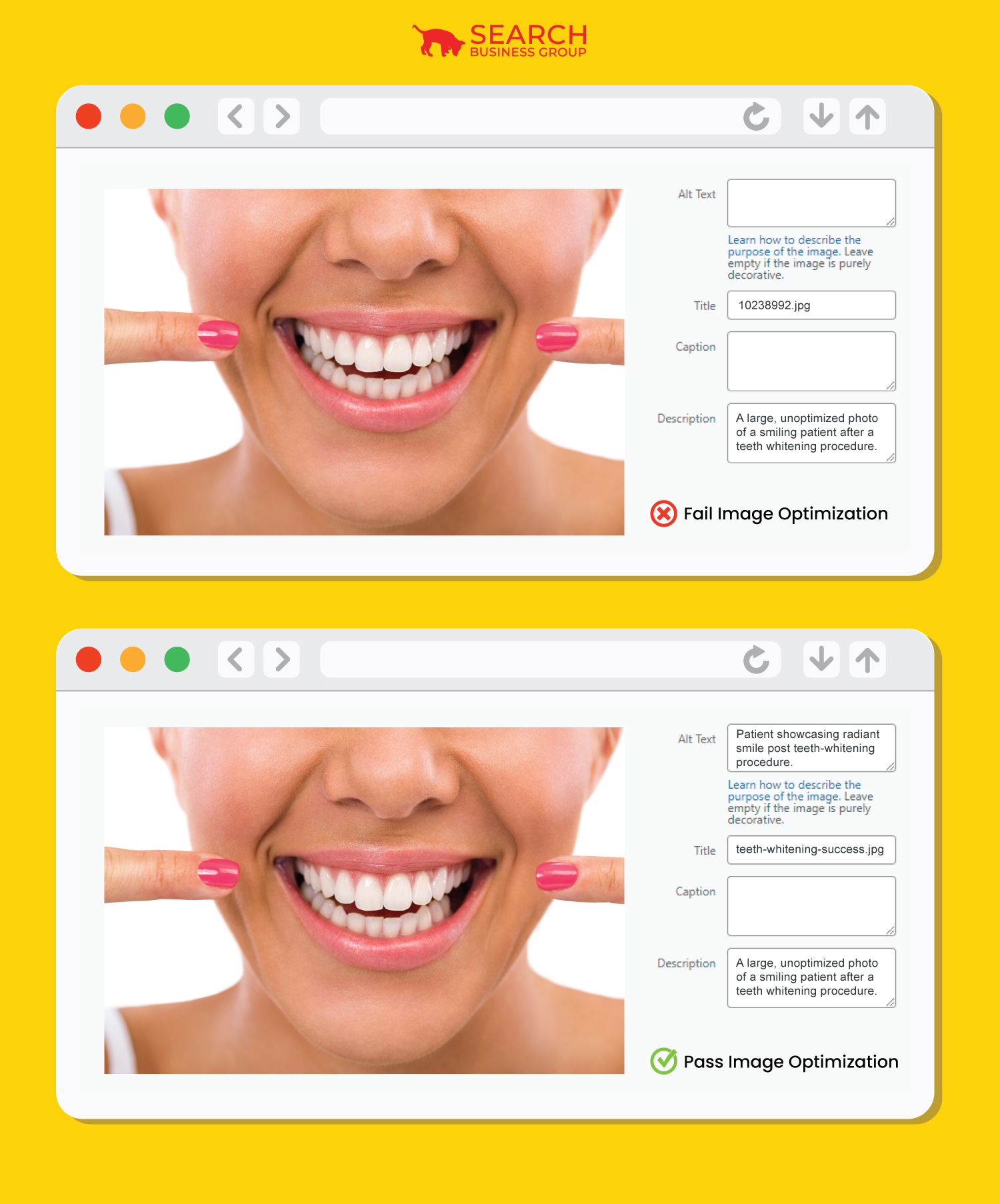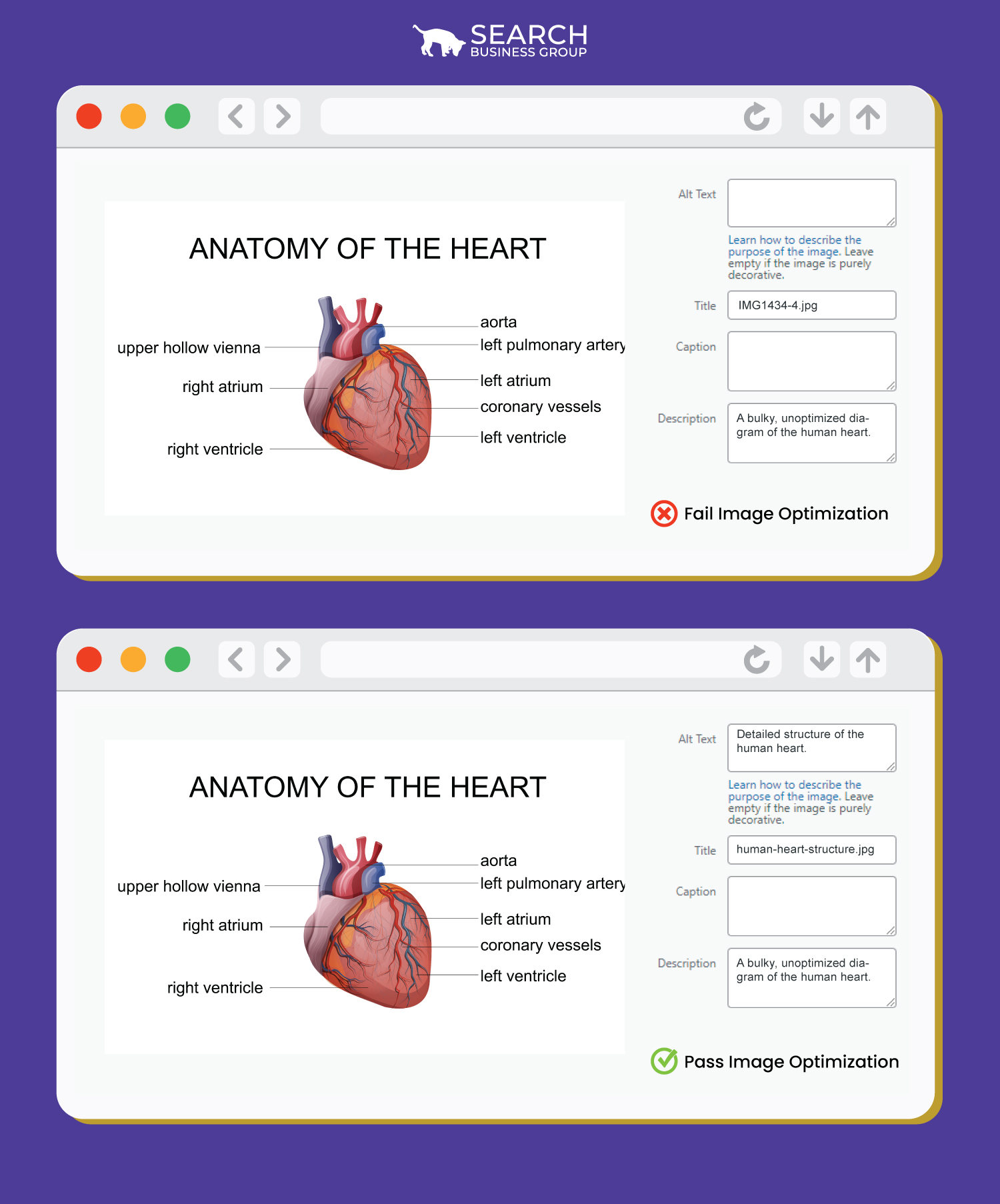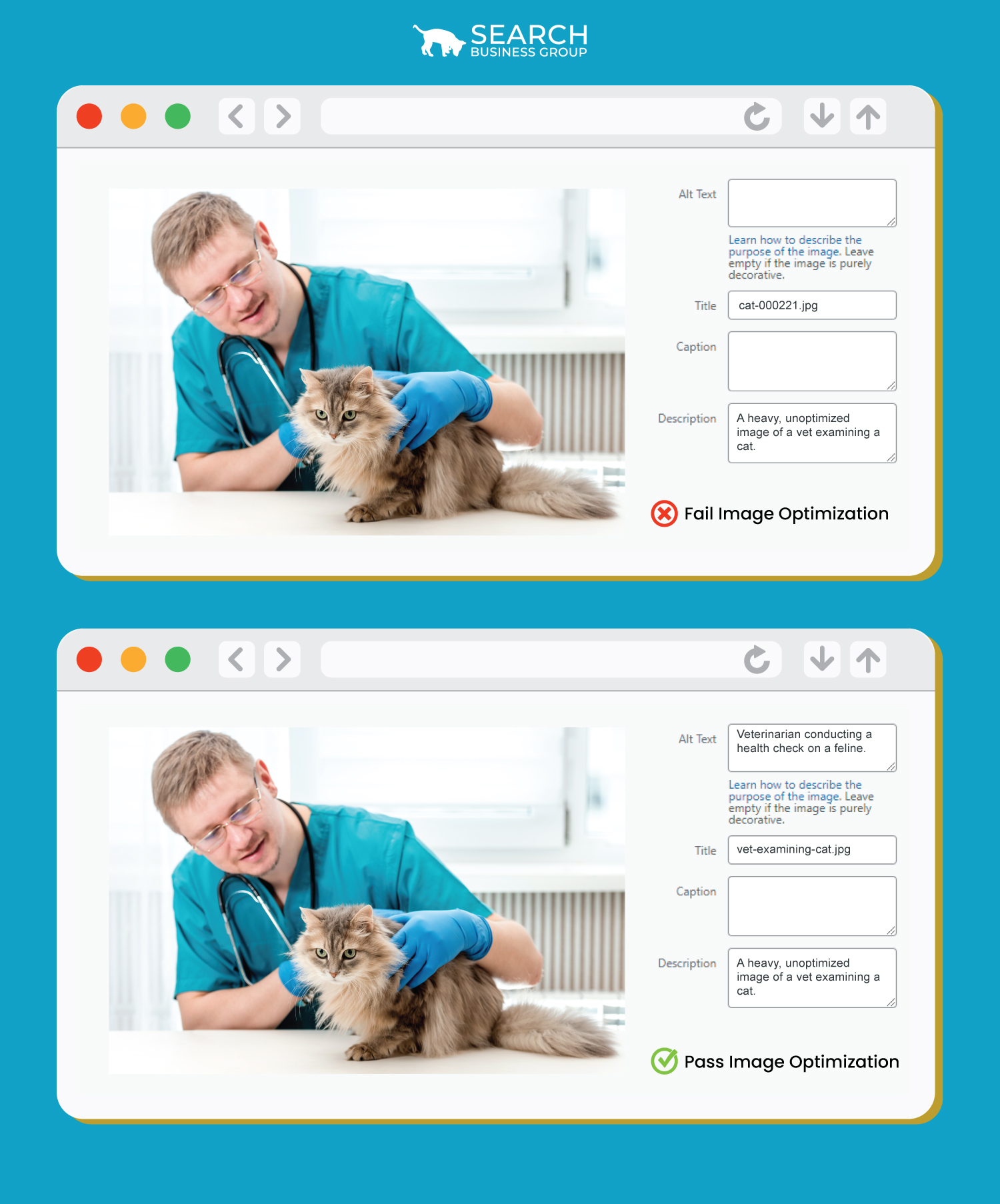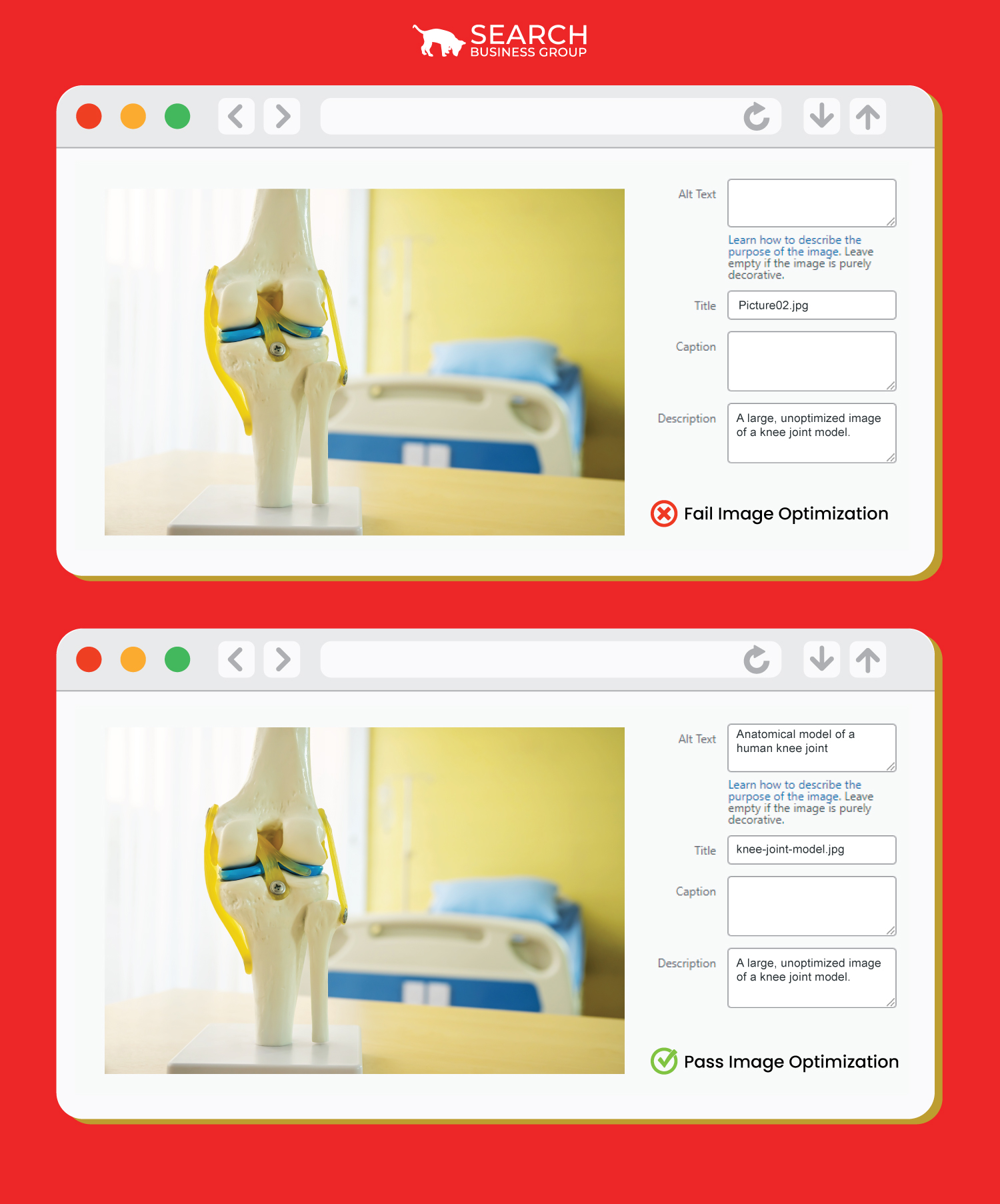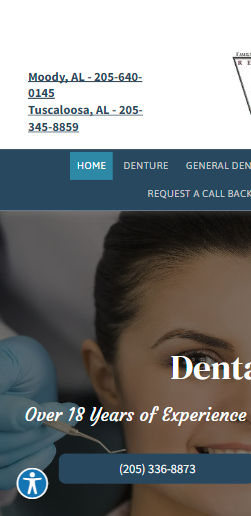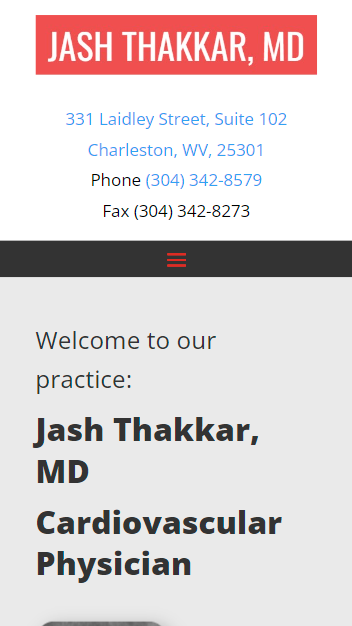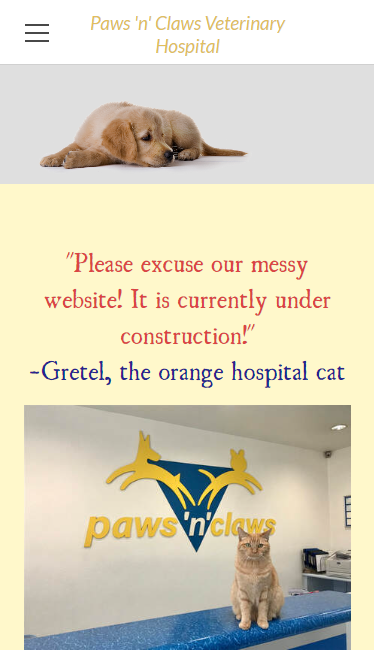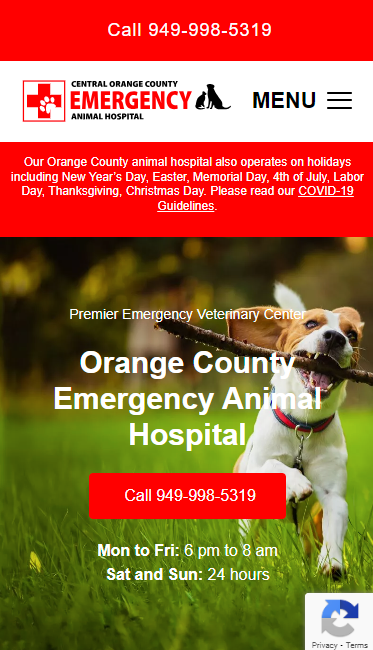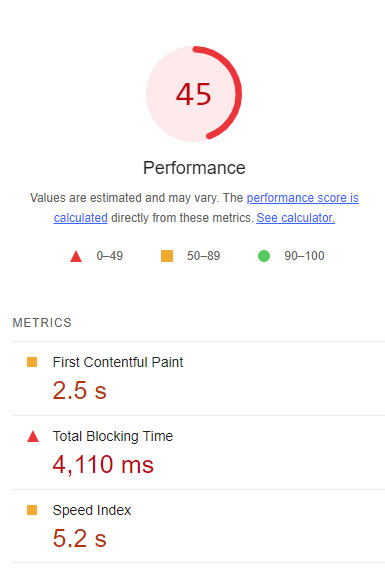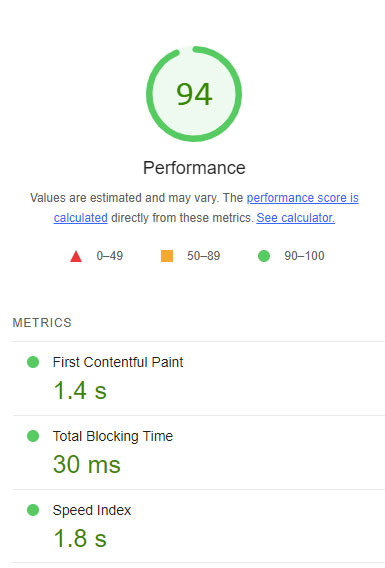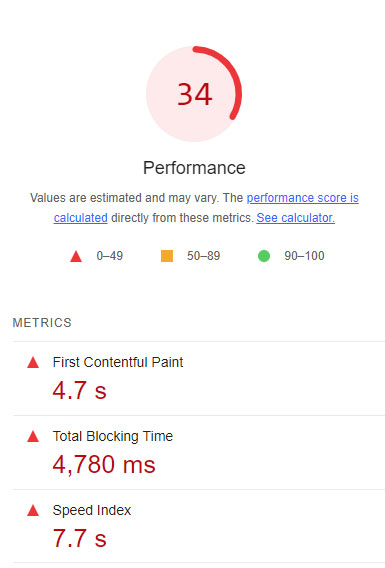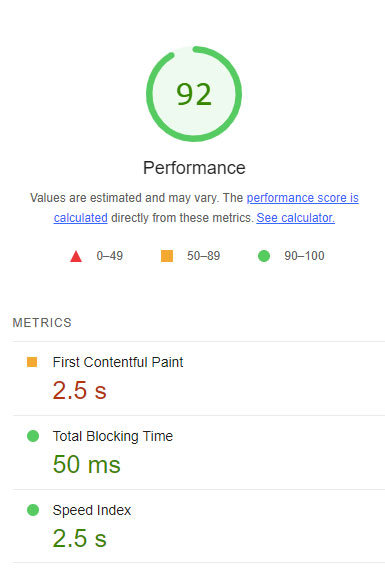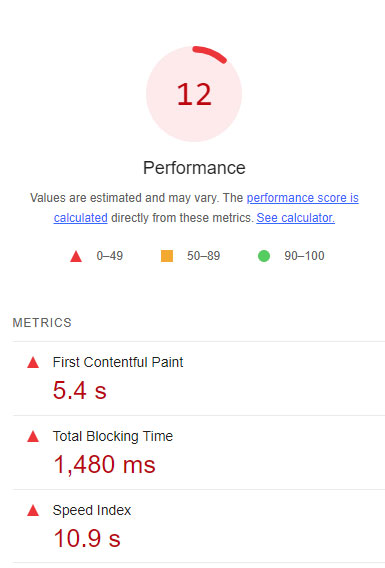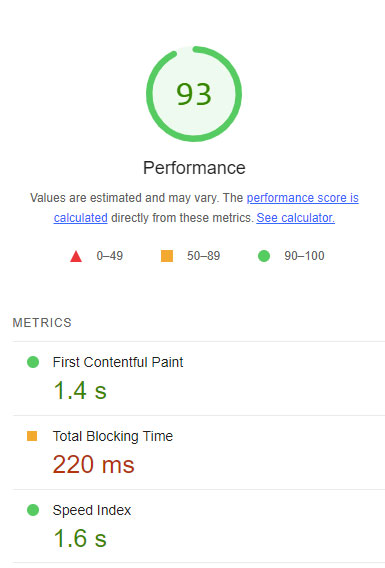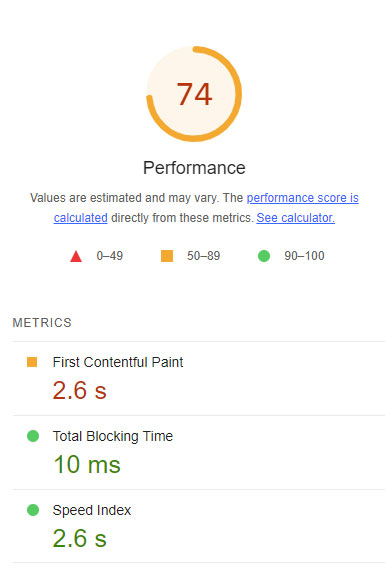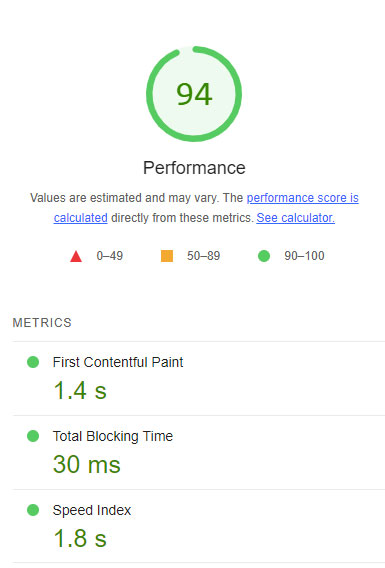On-Page SEO for Healthcare: The Digital Prescription for Visibility
In an era where most patients begin their healthcare journey online, establishing a strong digital presence is necessary if you want to make it in a world overloaded with competition. Much like the intricacies of the human body, the digital universe has its complexities. “On-Page SEO for Healthcare” is the vital heartbeat of your healthcare organization’s online presence. It ensures that medical professionals—be it doctors, veterinarians, or entire medical practices—are not just found but are also perceived as trusted and authoritative sources of care.
Stay with us and discover how our tailored strategies ensure that when patients search, they find you at the peak of digital health.
When you partner with Search Business Group, we’ll help you identify your strengths, and your target audience to earn more patients for your practice.
Making Your Way Through the Digital Healthcare Terrain
Your health is paramount, and so is your digital presence in today’s healthcare sector. SEO, or Search Engine Optimization, is the backbone of any website’s visibility and healthcare or veterinary marketing strategy. In simpler terms, think of it as the signage that guides patients to the right clinic in a massive hospital. Without it, even the most skilled professionals can remain unnoticed in the digital crowd.
In today’s healthcare industry, where patients frequently turn to the internet and its search engines for solutions, a strong Healthcare SEO strategy isn’t just recommended – it’s vital. Our specialized “On-Page SEO for Healthcare, including title tags and meta descriptions ” focuses on ensuring that when patients seek medical expertise, it’s doctors, medical practices, hospitals, and veterinarians like you that they find and trust instantly.
Healing the Visibility Gap: The Pulse of On-Page SEO
In the world of digital healthcare, your website is your digital reception. And just like a well-trained receptionist can make patients feel welcome, strong On-Page SEO can usher in potential patients.
Visibility: In the vast sea of online information, make your healthcare practice the beacon that patients gravitate towards.
Trust & Credibility: Just as the stethoscope symbolizes medical reliability, a well-optimized healthcare website design is the emblem of digital credibility.
Local Engagement: Your clinic’s location is crucial for walk-ins. Similarly, in the digital realm, your ‘online location’ or SEO rank dictates your local patient engagement.
Prescribing the Right Digital Medication: Our On-Page SEO Services
Like a perfectly mixed medication, blending the right Healthcare SEO elements can heal your online presence. Here’s how:
Mastering the Lexicon of Medical Search: The Heartbeat of Keyword Research
In the intricate realm of healthcare, words matter. Every term holds significance, from the terminologies that guide diagnoses to the advice given during a consultation. Similarly, in the digital space, the right keywords act as the lifeblood of visibility. Going deep into medical-specific keywords isn’t just about understanding popular search terms; it’s about aligning with the needs and concerns of patients. Furthermore, the potency of localized keywords cannot be understated.
For medical practices and hospitals, a localized keyword strategy ensures that the people nearby – those who can truly benefit from immediate services – can easily find them. Our keyword research approach merges a deep understanding of the medical landscape with the geo-specific needs of the community, ensuring you’re not just found but also sought after in the vast digital healthcare ecosystem.
Healthcare Keyword Examples
Dive deep into the DNA of medical search queries, unearthing terms like “orthopedic surgeon in [city]” or “pet dental care near me.”
Optimized Title Tags: The Front Door Signage
Picture a clinic with a clear signboard vs. one without. Titles are your digital signboards. We craft them to be inviting and indicative of your services.
Continue to Imagine walking down a street filled with medical clinics. One clinic has a bright, clear sign stating, “Dr. Smith’s Family Care – Pediatric and Adult Medicine.” The clinic next door simply says, “Medical Services.” Which one would you be more inclined to enter?
Much like these signboards, website title tags act as the front door signage in the digital world.
An optimized title tag boosts visibility in search engine ranking results and provides potential patients with a clear idea of the services offered, ensuring they click confidently.
Healthcare Title Tag Examples
These examples illustrate how a precise and descriptive title tag can significantly affect how a medical service is perceived online, guiding potential patients right to your digital and physical doorstep.
Meta Descriptions: The Elevator Pitch
A patient’s glance is fleeting. Capture their attention in those critical seconds with meta descriptions that sell your service before they even visit.
Just as an effective elevator pitch can secure interest in a brief interaction, a well-crafted meta-description provides a concise overview that entices potential patients to click on your website. Here are some compelling meta-descriptions designed for different medical services:
Healthcare Meta Description Examples
These meta-descriptions act as the hook, providing enough intrigue and information to motivate potential patients to explore further, thus ensuring a higher click-through rate from search engine results.
URL Structure: The Organized Clinic Ward
Ever walked into a well-organized clinic ward? Our URL structures aim to give that clarity, ensuring easy navigation.
A neat and orderly clinic ward ensures that every patient knows where to go, reducing confusion and enhancing their experience. Similarly, a clean URL structure is crucial for guiding your website visitors and search engines. It provides a roadmap to your site’s content, ensuring each page is easily accessible and understandable.
Healthcare URL Examples
These structured URLs clarify what the page is about for the users, who are also your potential patients, and provide search engines with better context, improving the likelihood of a higher ranking in the search results.
Think of these optimized URLs as the well-labeled rooms in a clinic ward, ensuring every visitor knows exactly where they are and where they need to go.
Header Tags Structure: The Chapters of Your Digital Medical Journal
Just as a comprehensive medical textbook uses chapters and subsections to compartmentalize information, header tags in your website content work similarly. They guide your reader through the material and signal to search engines about the hierarchy and structure of your healthcare content. A proper header tag structure boosts readability and SEO value.
Healthcare Header Tag Examples
Dentistry Services
Cardiology Clinic Page
Veterinary Clinic Page
Orthopedic Services Page
This structured hierarchy, evident in the header tags, ensures readers can scan the content easily and find the sections most relevant to their needs. Meanwhile, search engines like Google can index the content more efficiently, understanding the importance and context of each section.
High-Quality Content Creation: The Doctor-Patient Chat
We replicate the informative nature of doctor-patient interactions, crafting healthcare content that’s both enlightening and engaging.
In healthcare, a conversation between a doctor and a patient is paramount. It’s not just about conveying medical facts; it’s about understanding, empathy, and ensuring the patient feels heard and informed. Similarly, high-quality content educates, engages, and builds trust with the healthcare website visitor and prospective patient. Let’s explore some content strategy examples that reflect this philosophy:
These high-quality content examples mirror the doctor-patient interaction’s depth, compassion, and clarity, fostering trust and highlighting expertise while keeping the reader’s needs and emotions at the forefront.
We are a team of skilled and experienced healthcare writers who can create engaging and informative content for your practice.
Internal Linking: The Referral System
Ever been referred by a general physician to a specialist? Think of internal links as these referrals, guiding your visitors to the specialized information they need.
Internal linking serves as a guided pathway, smoothly transitioning your visitors from one related topic to another, enriching their understanding and boosting their on-site experience.
Healthcare Internal Linking Examples
Dentistry Services
Cardiology Clinic Page
Veterinary Clinic Page
Orthopedic Services Page
These internal links engage the reader, your future patient, by offering a deeper dive into specific topics and helping distribute page authority throughout the site. Just like referrals in the medical field build trust and ensure holistic care, internal links stitch together the narrative of your healthcare website, ensuring a cohesive and comprehensive user and patient experience.
Image Optimization: The Medical Imaging for Websites
Just as medical images clarify health conditions, optimized website images clarify doubts about your services while ensuring swift loading times.
In healthcare, clarity is paramount. A crisp X-ray or a detailed MRI can differentiate between a precise diagnosis and a missed condition. Similarly, optimized images on a website provide visitors with visual clarity while ensuring the site remains fast and responsive.
Here’s how image optimization is akin to precise medical imaging, with examples:
Dentistry Services Page
Cardiology Clinic Page
Veterinary Clinic Page
Orthopedic Services Page
Remember, image optimization on a website delivers visual information efficiently, enhancing user and patient experience while maintaining the speed and performance of your healthcare website design. The added details like file names and alt text further enhance Healthcare SEO, much like how annotations on medical images provide additional context for health professionals.
Mobile Optimization: House Calls in the Digital Age
Remember house calls? House calls epitomize personalized care in the medical field, ensuring that healthcare reaches the patient’s doorstep. In today’s digital age, the closest parallel is mobile optimization.
Making sure your website runs seamlessly on mobile devices is akin to bringing your medical services right into the palms of potential patients.
Healthcare Mobile Optimization Examples
Dentistry Services Page
Cardiology Clinic Page
Veterinary Clinic Page
Orthopedic Services Page
Healthcare mobile optimization, in essence, reimagines the accessibility and convenience of traditional house calls for the digital era. By ensuring your healthcare services are smoothly accessible on mobile devices, you meet potential patients right where they are, enhancing their experience and increasing their chances of choosing your healthcare services.
Page Load Speed Optimization: The ER of Digital Health
Just as the emergency room (ER) is designed for swift action and rapid response, a healthcare website should provide users and patients with immediate access to the information or services they seek.
Delays can be detrimental in both scenarios.
Let’s get into examples that showcase how optimizing page load speeds ensures that visitors, much like patients in an ER, are attended to promptly and effectively:
Dentistry Services Page
Cardiology Clinic Page
Veterinary Clinic Page
Orthopedic Services Page
Much like how an efficient ER ensures patients receive timely care, optimizing page load speeds ensures medical website visitors get the information they need without delay. This rapid response improves user experience and builds trust, as visitors equate fast-loading pages with professionalism and efficiency.
Schema Markup: The In-depth Patient Record
In the medical field, a comprehensive patient record allows healthcare providers to understand a patient’s history, diagnose current issues, and predict potential health challenges. Similarly, Schema Markup gives search engines a richer understanding of your website’s content, ensuring they present it accurately and attractively in search results.
Here are examples to illustrate the power of Schema Markup:
Dentistry Services Page
Before Schema Markup 😑
Search results for the page just display the title and a snippet of content, potentially missing out on crucial information like operating hours or specific services.

After Schema Markup 😀
Search results now showcase the dentist’s ratings, the range of services provided, operating hours, and even the clinic’s location, this richer display makes it easier for potential patients to gauge the quality and breadth of services at a glance.

Cardiology Services Page
Before Schema Markup 😑
Listings merely show generic details about the clinic.
After Schema Markup 😀
Enhanced search results now highlight the lead cardiologist’s qualifications, patient testimonials, emergency contact details, and even available appointment slots, offering a holistic view at first glance.

Veterinary Services Page
Before Schema Markup 😑
Search results list the clinic’s name and a brief snippet, which might not capture its specialties.
After Schema Markup 😀
The enhanced display in search results now showcases services like pet vaccinations, emergency care details, and even pet care tips, ensuring pet owners have a detailed overview before clicking.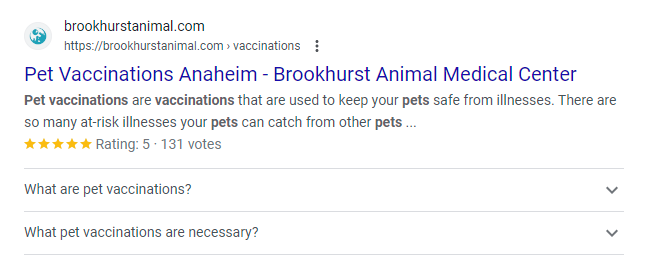
Orthopedic Services Page
Before Schema Markup 😑
Listings provide a basic description of the orthopedic services.
After Schema Markup 😀
Now, search results offer enriched information, including treatment modalities, physiotherapy options, patient success stories, and direct links to book consultations.
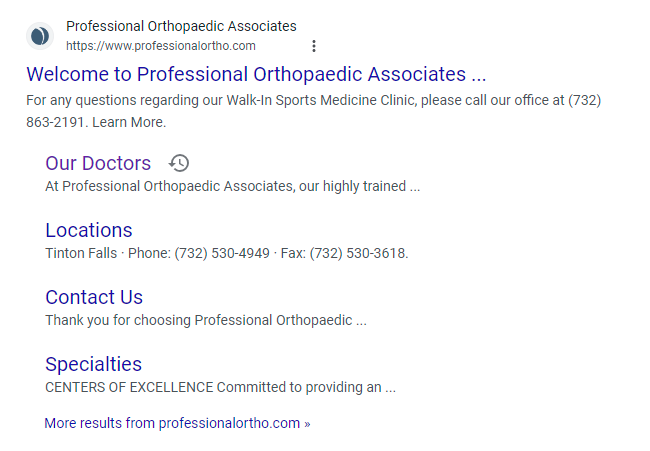
Schema Markup is similar to the barcodes on patient files, guiding healthcare professionals to critical insights. Similarly, in digital terms, it ensures that search engines glean a comprehensive understanding of your healthcare services, presenting them in a more detailed and structured manner. This improves visibility in search results and provides potential patients with the precise information they need to make informed decisions.
Tailored Treatments: Custom SEO Plans for Every Medical Niche
Different health concerns require specialized treatments. Some of our healthcare SEO strategies include:
Doctors & Medical Practices: Like a doctor’s personalized advice, we emphasize personal branding, credentials, and patient success stories.
Hospitals: The multi-departmental approach in hospitals is mirrored in our diverse strategies, emphasizing everything from neonatal care to neurosurgery.
Veterinarians: As vets understand felines and canines, we craft strategies that resonate with every pet owner’s concerns.
If you’re interested in sustainable growth for your practice, check out our solutions for affordable and efficient Healthcare SEO pricing.
The Search Business Groups Promise: Our Commitment to Healthcare Digital Wellness
Search Business Groups isn’t just another digital marketing agency; we’re the pulse of healthcare digital rejuvenation. With a legacy spanning over two decades, we pride ourselves on being recognized leaders in healthcare digital marketing.
Two Decades of Healing Digital Footprints
For over 20 years, we have rejuvenated the online presence of countless healthcare professionals. We’re not just digital marketers but seasoned digital health consultants, offering remedies to your online ailments and ensuring your digital health thrives.
Deep-Rooted Expertise in the Medical Field
Our extensive experience isn’t generic. It’s deeply rooted in the medical domain, allowing us to provide insights and strategies tailored to the nuances of the healthcare industry. We understand the intricacies, challenges, and rewards of medical practices, hospitals, and veterinary services.
More Than Just On-Page Solutions
While our on-page SEO solutions are bespoke and prescribed specifically for healthcare, our services extend beyond. From crafting impeccable healthcare and veterinary website designs that resonate with your clientele to implementing surgical precision in healthcare SEO, we leave no stone unturned.
Making a Difference Beyond Business
Our commitment isn’t just to grow your practice – it’s broader, deeper. We partner with healthcare professionals and veterinarians to amplify their reach and influence, ensuring they can touch more lives.
Every strategy we deploy and every content piece we curate aims to improve digital statistics and ensure that healthcare providers make meaningful differences in patient lives.
Comprehensive Digital Care
We offer an all-encompassing suite of digital marketing services. Whether content marketing educates and informs or precision-targeted SEO that brings your services to the forefront, we have the antidote for all your digital concerns.
With Search Business Groups by your side, you’re not just getting a marketing agency. You’re partnering with a dedicated team that’s as committed to your mission of healing and care as you are.
Only
Real SEO Results
New patients = Healthy Practice
Are You Ready for a Digital Health Check-up?
Your digital wellness path starts with a single step. Reach out and let us assess the health of your online presence.
Demystifying Digital Health: FAQs
Every patient has questions, and we’re here to answer yours. Dive into our FAQ section to quench your queries.
What is on-page SEO?
On-page SEO refers to optimizing individual web pages to rank higher in search engines. For healthcare professionals, consider it the digital equivalent of ensuring your clinic or practice is easily locatable, inviting, and offers a clear message about your services.
How to do on-page SEO?
Doing on-page SEO involves optimizing various elements of your web pages, like content, meta tags, images, and more. For medical practitioners, it’s like ensuring every patient interaction, from the waiting room to consultation, is seamless. This can include optimizing title tags to reflect services, creating engaging content about treatments, and ensuring fast page load times for patient convenience.
What are the benefits of on-page SEO?
On-page SEO ensures your healthcare services are presented clearly and attractively to search engines and potential patients. Benefits include increased visibility in search results, a better user experience for patients, and, in turn, higher conversion rates for appointments or inquiries.
What are the best practices for on-page SEO?
Best practices involve creating high-quality, patient-focused content; optimizing title tags and meta descriptions to represent services accurately; ensuring quick page load times (like an efficient ER); and setting up clear URL structures like an organized clinic ward.
What are the most important on-page SEO elements?
For healthcare professionals, the crux of on-page SEO lies in creating content that resonates with patients’ concerns and queries. This is complemented by optimizing title tags and meta descriptions to provide a clear snapshot of your services. Ensuring your website is mobile-friendly is also vital, as many patients will likely access it from their smartphones. Another key element is the strategic placement of internal links, guiding visitors to relevant services or informative content on your platform.
How does on-page SEO differ from off-page SEO?
On-page SEO focuses on optimizing elements within your website, ensuring patients have a smooth experience once they “enter your digital clinic.” On the other hand, off-page SEO relates to external factors influencing your site’s reputation and authority, like getting references (or backlinks) from reputable medical journals or patient testimonials on other platforms.
How can I improve my on-page SEO?
Improving on-page SEO for a medical or veterinary practice revolves around several core strategies. Regularly updating your website with patient-focused content keeps your digital presence fresh and relevant. It’s equally essential to ensure that your website adapts well to mobile devices, especially since many patients and pet owners search for services or book appointments while on the move. Incorporating relevant keywords naturally within your content, titles, and meta descriptions enhances search visibility. Lastly, an intuitive website structure that facilitates easy navigation is akin to clear signage in a clinic, guiding patients seamlessly to the information or services they seek.
What is the difference between on-page and technical SEO?
While on-page SEO focuses on content and page optimizations for both search engines and patients, technical SEO dives into the backend – ensuring the “digital health” of your site. For medical practitioners, think of technical SEO as the infrastructure of a hospital; it ensures all systems run smoothly, from site speed to crawlability, ensuring that patients (or visitors) have uninterrupted access to care (or information).






